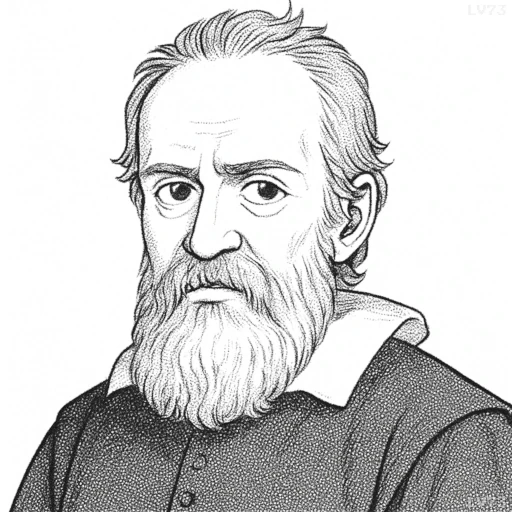“It vexes me when they would constrain science by the authority of the Scriptures, and yet do not consider themselves bound to answer reason and experiment.”

- February 1564 – January 8, 1642
- From the Duchy of Florence (Italy)
- Physicist, astronomer, mathematician
table of contents
Quote
“It vexes me when they would constrain science by the authority of the Scriptures, and yet do not consider themselves bound to answer reason and experiment.”
Explanation
In this quote, Galileo expresses his frustration with those who attempt to use religious authority to suppress scientific progress. He critiques individuals who, while relying on Scripture to justify their beliefs, ignore reason and empirical evidence—the very tools of scientific inquiry. Galileo’s own experience of facing opposition from the Church over his support for the heliocentric model is reflected here. He is highlighting the inconsistency of using religious texts to impose limits on scientific investigation while refusing to engage with the rational methods that science demands. For Galileo, reason and experiment were the proper means of understanding the natural world, and he believed that religion and science should not be in conflict when both are approached honestly.
This sentiment resonates in modern discussions about the relationship between science and faith. There are still debates today about topics like evolution, genetics, and climate change, where some individuals seek to undermine scientific consensus using religious or ideological arguments. Galileo’s words remind us of the importance of respecting the scientific method—which is based on reason, observation, and experimentation—and how it can lead to discoveries that enhance our understanding of the world, regardless of preconceived beliefs. At the same time, Galileo’s view encourages a harmonious relationship between science and spirituality, where religious faith does not hinder scientific progress, but instead coexists with rational inquiry.
Galileo’s frustration also underscores the value of intellectual freedom. He was a firm believer that science should be allowed to operate independently of dogma and external authority, which he saw as stifling innovation. Today, the need for academic freedom remains just as critical. Whether in scientific research, public policy, or education, the importance of reason and evidence-based thinking is essential in solving the complex challenges of modern society. Galileo’s critique is a call to ensure that decisions, both in science and in broader societal issues, are based on facts and logic, not on religious or political pressure that ignores the proven principles of reason and experiment.
Would you like to share your impressions or related stories about this quote in the comments section?
